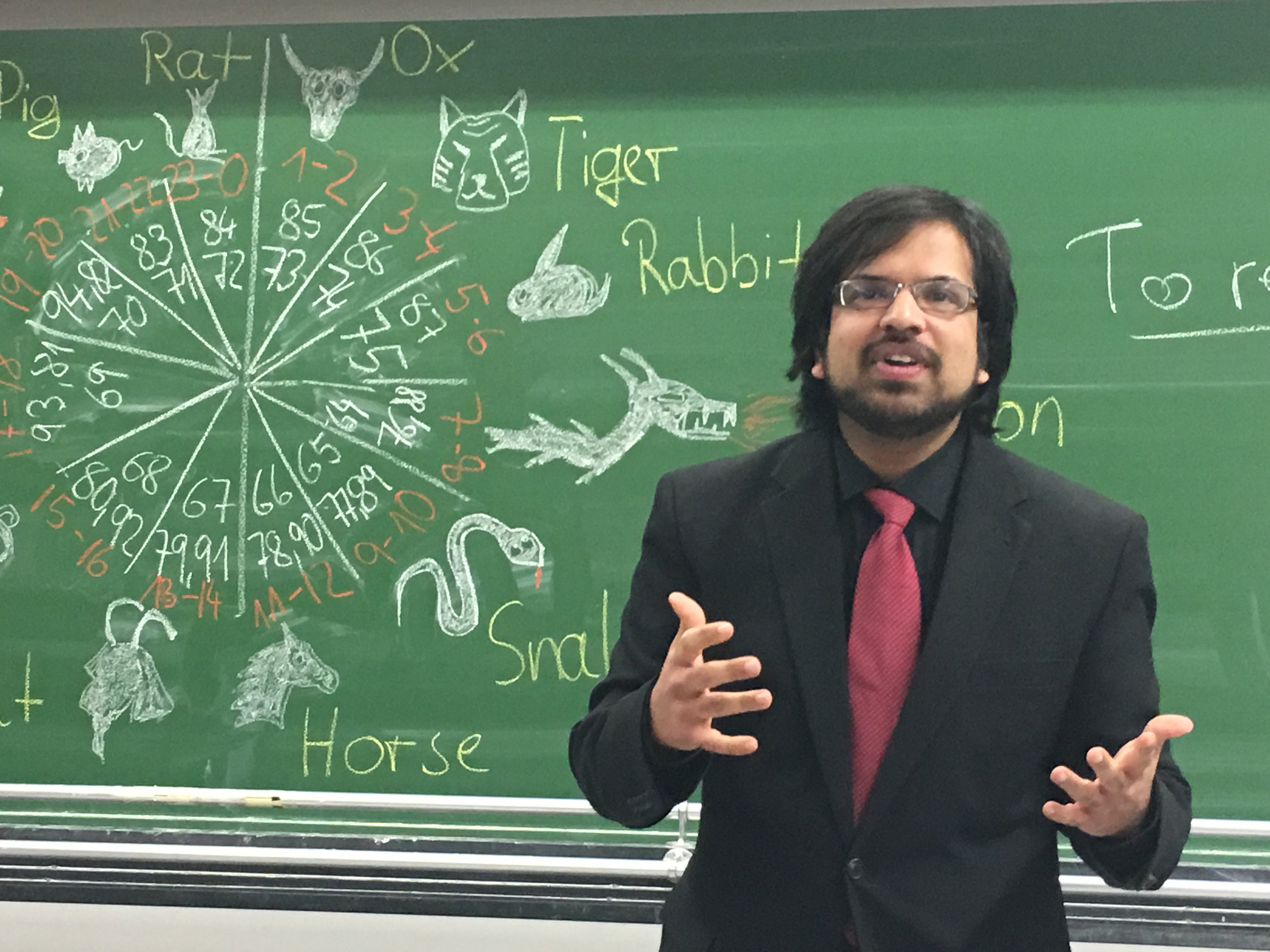
How to run a meeting well
Overview of the meeting roles
A single Toastmasters meeting of two hours gives up to 27 persons the chance to speak. If everyone prepares well, the evening will gift us and our guests with energy, joy, learning opportunities, and entertainment.
If you manage the welcome desk, you greet the guests. You also hand out evaluations slips and agendas to everyone. You are the host of the meeting. Please try to have the guests sign the guest book, we would like to invite them to come back.
The biggest roles of all are the speakers and the three moderators of the evening. Depending on the project they do, speakers get between 2 and 15 minutes. The Toastmaster (TM), the Table Topics Master (TTM), and the General Evaluator (GE) each are responsible for running one part of the meeting.
Timing is extremely important. Every single role is timed. Sometimes for a single slot – as with speeches and small roles and sometimes checking on how well the assigned part of the night was run. Good timing is an extremely valuable skill. You will develop a good sense of timing if you participate regularly. The role that helps us to stick to the timing is the Timer.
As language is our main tool, we devote a separate role to it, the Grammarian. He or she will point out good, better, and the best use of the English language during the meeting. The Grammarians get to choose: they can present us with a word or a rhetorical device of the day. Everybody is highly encouraged to use them. The audience acknowledges the usage by knocking. This helps us to make the word or the stylistic device of the day our own.
The Ah-Counter helps us to rid ourselves of unnerving ticks and mannerisms. The Ah-Counter rings a small bell when you use an ah, umm, or any other linguistic infractions. You may tell him or her what to watch out for. We also ring the bell for lip-smacking, uhmming, repetitive and unnecessary use of certain words such as „and“, „like“, „but“, or even „so“. The bell is rung a maximum of three times in total per person. At the end of the evening, the Ah-Counter reports on the number of times each tick was displayed by a member. If you prefer not using the bell, simply let the Ah-Counter know beforehand.
All three, the Timer’s, the Grammarian’s and the Ah-Counter’s reports are a chance to learn how to deliver bad news. These roles provide invaluable but unpleasant information to speakers. A speaker needs to know for example if they’ve gone over time.
All three small roles, the Timer, the Ah-Counter, and the Grammarian each get one minute in the first part of the evening to explain their role. These are little mini-speeches. Make sure that you prepare them well and wow us. These small roles therefore offer the a chance to speak twice. First giving the role description and later reporting on the results of the evening. They instill fast progress if taken seriously.
The stars of the evening are the speakers. Please prepare well. Make sure that you enter both the speech title and the project on EasySpeak no later than Monday before the meeting. Hand your evaluation form to your Evaluator before the meeting starts. Send them the objectives of your speech and project. If you have any specific concerns, let them know what to watch out for. If you want to progress faster, come prepared with a speech or presentation – ready to deliver, in case one of the assigned speakers falls ill.
The three biggest roles are the Toastmaster of the evening, the Table Topics Master and the General Evaluator. Each is responsible for one part of the meeting. When you take on one of these three roles, you not only organize and moderate that proportion of the night, you also ensure we stay in time. Using less time than allotted might be ok, going over time, however, is not.
The Toastmaster of the Evening runs the first part of the evening and introduces the speakers. He or she may set a motto. If you do so – please make sure to inform both the Grammarian and the Table Topics Master beforehand. They will then try to adjust the word of the day and the Table Topics theme to the motto. A motto should be inspiring and be used throughout your moderation.
You are invited to plan a MOTTO NIGHT. On Motto Night everything revolves around the chosen motto. Even the speech topics and perhaps how the audience dresses up for the evening. E.g. Red or pink on Valentine’s day might not be overly creative, but is always fun. Try to act on your idea early on. We have found that good mottos are an inspiration to everyone and often produce the best speeches and truely enthralling evenings. So please! Go the extra mile!
Talk to the Vice President of Education if you want to do a Motto Night. It is always a lot of fun. A Motto Night can be called as long as no speeches have been assigned to a meeting. It would also be your duty to help find speakers willing to adhere to the motto.
The General Evaluator evaluates everything that takes place throughout the meeting, the good, the bad, and even the ugly. He is our quality control. The GE points out what went well, as well as areas where there is room for improvement. The GE usually does not comment on the prepared speeches. That is the office of the Evaluators.
As an Evaluator, you provide personal and constructive feedback on a prepared speech. Feedback may touch on anything and everything. Speech structure, content, body language, vocal variety (pitch, tone, volume, speaking rate), use of props, use of rhetorical devices, whether speech objectives were met, what one enjoyed, and most importantly how you would have enjoyed the speech even more.
The Table Topics Master can choose any topic and method to use for the impromptu speaking segment of the meeting. As many people as possible should be given a chance to speak. Please do not forget these rules:
1. Always pose the question / give the topic before you call upon a speaker. This will make the whole segment a lot more exciting for everybody.
2. The camera operator should always be called.
3. Always ask one or two guests to speak.
4. Do not call on people who are already doing bigger roles (TME, TTM, and GE).
